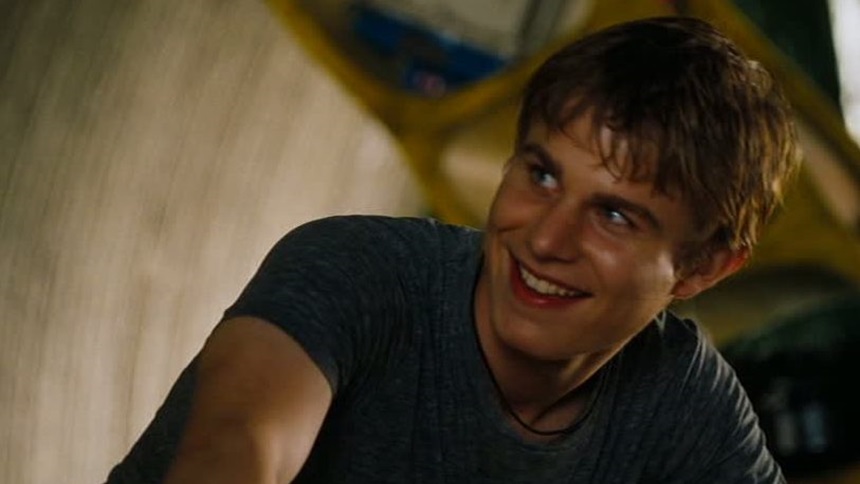Sound And Vision: Brady Corbet

In the article series Sound and Vision we take a look at music videos from notable directors. This week: two music videos by Brady Corbet.
Brady Corbet, the sometime actor has carved out a singular movie career as the director of films like Childhood of a Leader , Vox Lux and his new film The Brutalist, which premiered in Venice this week. His films are highly formalistic pieces that found inspiration in real life woes. They feel partly heightened and partly darkly realist. The push and pull between real life and performativity is there in his two music videos too.
We see this in his music video for Edward Sharpe and The Magnetic Zeros' Man on Fire (below). On the one hand it is a non-fiction piece showcasing the talent of step-dancers, cheerleaders, and double-dutch rope-jumpers, among other performative arts. The performers and their families are spotlighted standing still facing the lens, or performing in highly stylized shots with a mostly non-moving camera. Meanwhile text on screen puts their name and role on screen, without much other context.
Spotlighting performance in a real life setting, and then again heightening the artificiality via camerawork, typeface and editing, makes this video a constant battle between artificiality and verité, not unlike a Vox Lux, for instance. It feels very much a piece with Corbet's other works.
Corbet also directed a music video for Maya Hawke's Thérèse (also below, NSFW), which is a song inspired by Balthus' painting Thérèse Dreaming. That painting is controversial for sexualizing the subject of the painting, the thirteen-year old titular Thérèse. Hawks quiet whispers of 'It's tactless, it's a test/ It's just Thérèse, it's just Thérèse' seems to be signifying that we need to look beyond the painting and its controversies, and see Thérèse fully for who she is. The leering eyes of the painter don't diminish her worth as a person.
That is why it is fitting that Brady Corbet made a video with in your face sexuality, that demands the viewer to take it matter-of-factly and see the beauty in the freedom of uninhibited sexual joy. We witness a orgy in the woods at night, and the resultant "walk of shame" when police forces brutally disrupt this paradise. L'origin Du Monde by Courbet gets cheekily referenced in a montage of body parts. Most of all, it is a music video that treats sex and nudity matter-of-factly, and is almost idyllic. The video isn't 'tactless', nor a 'test'. It's just 'Thérèse'.
Like Man on Fire, Thérèse fitfully flutters between a heightened dreamlike formalism and a naturalistic, almost hand-held camera and lighting style. The effect is that of a paradise lost, as if awakening from a dream. The very Corbet-esque credits, with a noticeably stylized typeface in a massive text block that scrolls sideways, drives the point home that we've been watching Cinema. In Corbet's films he takes inspiration from real life historical trauma and reworks them into cinematic nightmares. Both his music videos feel lighter, more dreamlike, but share the same stylistic approaches. Like amuse-bouches for the full course meals that are his features. Seek them out.







